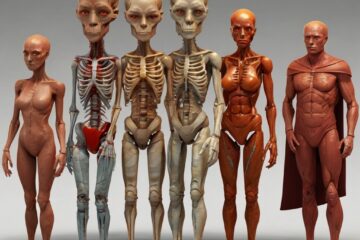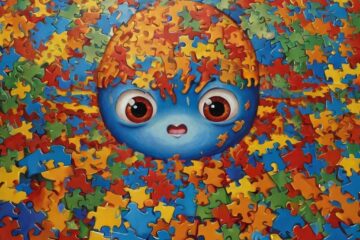Dreams have intrigued people across cultures, sciences, and philosophies for centuries. While some view dreams as random neurological activity, others see them as meaningful reflections of the subconscious, spiritual messages, or windows into unresolved emotions. Here’s a more detailed look at different interpretations and why dreams might “mean something”:
1. Freudian Psychoanalysis
- Dreams as Wish Fulfillment: Sigmund Freud’s famous theory suggests that dreams are disguised expressions of unconscious desires and repressed emotions. According to him, dreams allow us to explore feelings or desires we suppress in waking life, often using symbols that mask the true content of those desires.
- Manifest vs. Latent Content: Freud differentiated between the manifest content (what you actually see in the dream) and the latent content (the hidden, symbolic meaning). For example, dreaming of a locked door might symbolize a feeling of being trapped or restricted in waking life.
2. Carl Jung’s Theory: Collective Unconscious
- Archetypes and Symbols: Carl Jung believed that dreams are a way to communicate with the collective unconscious, a repository of shared human experiences and archetypal symbols (like the “hero,” “shadow,” “wise old man”). Jungian interpretations see dreams as tapping into deep, universal truths that speak to individual growth or psychological health.
- Self-Realization: Jung proposed that dreams help facilitate individuation, the process of becoming more self-aware and whole. Dream symbols often represent aspects of the self we are not fully conscious of.
3. Modern Neuroscience and Dreaming
- Activation-Synthesis Hypothesis: This theory suggests that dreams are merely the brain’s attempt to make sense of random neural activity during REM (rapid eye movement) sleep. The brain synthesizes this activity into a coherent narrative, but this doesn’t necessarily mean the dream has intrinsic meaning.
- Memory Consolidation: Another prominent theory in neuroscience is that dreaming is involved in memory consolidation. During REM sleep, the brain processes and stores information from the day, and dreams could be a byproduct of this process, helping us form long-term memories.
- Emotional Regulation: Some neuroscientists suggest that dreams allow us to process emotions. Studies show that people who experience vivid dreams may work through emotional challenges during sleep, possibly reducing anxiety and stress.
4. Cultural and Spiritual Interpretations
- Prophetic Dreams: In many cultures, dreams are believed to carry messages from the divine or predict future events. In ancient Greek and Roman societies, dreams were often seen as omens, and they consulted oracles for interpretations. Some Indigenous cultures view dreams as a form of spiritual guidance or communication with ancestors.
- Symbolism in Religious Texts: In texts like the Bible, dreams often carry spiritual significance. For example, Joseph’s dreams in the Old Testament were interpreted as divine prophecies about his future and the fate of nations.
5. Dreams and Emotional Reflection
- Stress and Anxiety: People often dream about situations that evoke strong emotions, such as falling, being chased, or losing something important. These types of dreams may reflect underlying anxiety, fear, or stress in waking life. For example, dreaming about failing an exam might reflect a real fear of failure or inadequacy.
- Lucid Dreaming: In some cases, individuals can control their dreams. This phenomenon, known as lucid dreaming, has fascinated psychologists and dream researchers. Lucid dreamers often report using their dreams to solve problems, confront fears, or explore new perspectives on their waking-life issues.
- Recurring Dreams: If you have recurring dreams, they may point to unresolved issues in your life. For example, recurring dreams about being lost might symbolize feelings of uncertainty or lack of direction in life.
6. The Role of Personal Experience
- Personal Symbols: While certain symbols have widely recognized meanings (water can symbolize emotions, flying can symbolize freedom), dream interpretation is highly personal. What a specific symbol means to you may differ from what it means to someone else. For instance, dreaming of a dog might represent loyalty or companionship to one person, while to another it might evoke fear if they have had a bad experience with dogs.
- Trauma and Dreams: People who have experienced trauma often have vivid or distressing dreams related to the event. In this sense, dreams can act as a space where unresolved or unprocessed experiences resurface. Nightmares and flashbacks are common in individuals with PTSD (Post-Traumatic Stress Disorder), as the brain attempts to work through the traumatic experience during sleep.
7. Dream Interpretation in Modern Psychology
- Cognitive Problem-Solving: Some psychologists believe that dreams serve as a way to solve problems we encounter in waking life. In this view, the mind continues to work on issues while we sleep. For example, you might dream of solving a complex problem at work or finding a creative solution to a personal issue.
- Therapeutic Tool: In therapy, dreams can be used as a tool for self-reflection. Therapists may encourage clients to analyze their dreams, not necessarily to decode hidden messages but to understand emotions, fears, or unresolved conflicts that might be influencing their waking life.
8. Nightmares and Disturbing Dreams
- Fear and Trauma: Nightmares are intense, disturbing dreams that can evoke feelings of terror, anxiety, or sadness. They are often associated with stress, trauma, or unresolved issues. Some nightmares might stem from recent life events, while others could be rooted in past experiences or deeper psychological fears.
- Sleep Disorders: In some cases, frequent nightmares or intense dreams may be symptoms of a sleep disorder like REM sleep behavior disorder (RBD) or sleep apnea. In these cases, it’s important to consider whether underlying health issues are influencing the dream patterns.
Conclusion
The question of whether dreams “mean” something depends on your perspective. From a scientific standpoint, they may be the brain’s way of processing memories, regulating emotions, or simply making sense of random neural activity. From a psychological, cultural, or spiritual viewpoint, they may be rich with symbolism, personal significance, or even divine messages.
While dreams can often reflect your emotional state or provide insight into unresolved issues, their exact meaning is subjective and open to interpretation. You might find it helpful to explore your dreams through journaling, therapy, or by analyzing recurring patterns to uncover potential meanings that resonate with you personally.



0 Comments